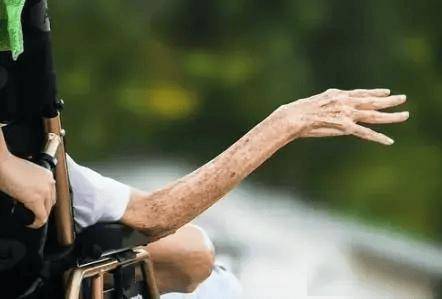Before reading this article, we sincerely invite you to click “Follow”. This will not only facilitate your discussions and sharing but also provide you with more professional health knowledge to help ensure your health. Thank you for your support.
Do elderly people live longer if they are thin? Is this statement really reliable? You see, many elderly people do have a lean physique. What are the reasons behind this? How does it relate to their lifespan? Weight loss in the elderly may be due to natural body aging or a decrease in digestive and absorptive functions. People of this age group are more likely to lose weight because various bodily functions are not as efficient as before.
However, although we often hear that “thin people live longer,” is this really true? For people over 60, being slightly overweight may actually benefit their health.
For example, influenza or pneumonia tend to have more severe courses and higher mortality rates in elderly populations with poor physique and insufficient weight. Additionally, osteoporosis is more commonly seen in lighter-weight elderly individuals, possibly due to decreased bone density from malnutrition, increasing the risk of fractures.
Nevertheless, “a little fat” may just be beneficial for those over 60. Maintaining a moderate weight can help strengthen the immune system, prevent diseases, and maintain bodily functions positively. Let’s continue discussing weight issues after 60, exploring what weight range qualifies as “healthy obesity” for elderly people and how it aids in extending their lifespan.
For individuals over 60, maintaining a certain level of body fat percentage can act as a natural barrier against various age-related diseases.
Many might question whether weight gain increases the risk of chronic diseases such as heart disease. It is essential to differentiate between obesity and moderate weight gain.
Moderate weight gain, especially on a foundation of muscle and proper fat levels, can enhance the physical strength of the elderly, improving their quality of life. Moderately weighted elderly individuals tend to have lower rates of heart disease and stroke compared to underweight counterparts.
Additionally, weight is related to bone density for the elderly. Osteoporosis is a common issue among the elderly, and appropriately weighted elderly individuals, as their bones bear more loads, can promote bone health, maintain bone density, and prevent falls and fractures.
Let’s talk about muscles. Maintaining muscle mass through proper diet and moderate weight gain is highly beneficial for elderly individuals.
Muscles are not only the source of movement but also aid in regulating blood sugar levels, increasing the body’s metabolism, which are crucial factors in preventing age-related diseases, particularly diabetes. Furthermore, muscles serve as a reserve for proteins.
During surgeries or severe illnesses in the elderly, sufficient muscle reserve can supply necessary amino acids to aid in tissue recovery, crucial for their recuperation.
Therefore, “healthy obesity” after 60 is not just about numerical weight but a comprehensive combination of muscle, bone structure, and body fat percentage.
Remember, this type of “mild obesity” is a healthy, balanced state, where muscles and proper fat harmoniously coexist. Such weight not only gives elderly individuals a more vibrant appearance but also safeguards their health as a little secret.
Apart from maintaining a suitable weight, elderly individuals seeking healthy longevity should pay attention to other aspects as well. Diversity in diet is essential. Elderly individuals’ diets should not only focus on “eating healthy” but also emphasize “eating diversely.”
A diverse diet can fulfill the body’s needs through rich food choices, particularly as aging diminishes the body’s absorption capacity. Foods like vegetables, fruits, whole grains, legumes, fish, and adequate meats can provide essential vitamins and minerals, supporting normal physiological functions and immunity.
Exercise is crucial. Many believe that the elderly should be less physically active, but this is a misconception.
Choosing suitable types of exercise, such as walking, tai chi, swimming, among others, are elderly-friendly activities that help maintain vitality while avoiding excessive physical strain.
Social activities are beneficial. Participating in community events or regular gatherings with family and friends can make elderly individuals feel needed and cared for, leading to active engagement in life and fostering a positive mindset.
Sleep quality is imperative. With age, many elderly individuals face sleep instability issues, such as difficulty falling asleep or waking up easily. Adjusting bedroom environments, like using heavy curtains to block outside light and ensuring the room temperature is conducive for sleep, can aid in better sleep quality.
Mindset matters. Elderly people with optimistic attitudes tend to have more normal biological markers and a lower risk of diseases.
For the elderly to achieve healthy longevity, maintaining a moderate weight, a diverse diet, appropriate exercise, engaging in social activities, enjoying good sleep, and fostering an optimistic mindset are all crucial components.
Each aspect should not be overlooked as only through comprehensive adjustments and improvements can true health and longevity be achieved. So, if you have elderly individuals at home, consider starting from these aspects to help them build a healthier, more vibrant life in their senior years.


